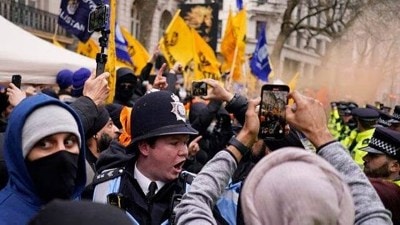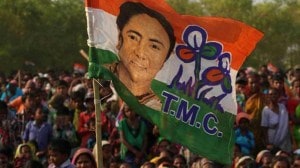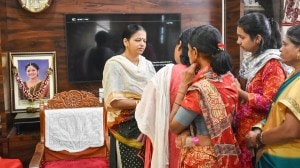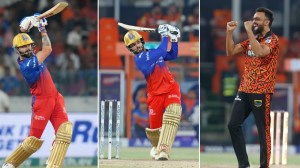- India
- International
Explained: What President Rajendra Prasad said in first R-Day speech
On each Republic Day, the President’s speech carries significance, as it outlines the programme of the government that he/she presides over.
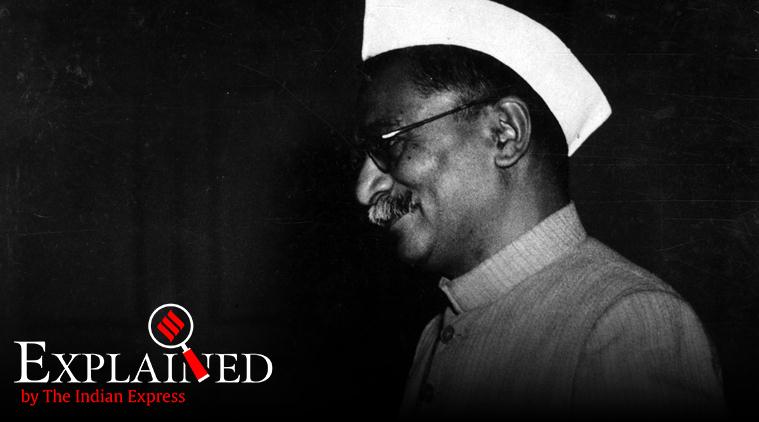 Rajendra Prasad, one of the leaders of the Independence Movement, became the country’s first President on 26 January, 1950. (Express Archive)
Rajendra Prasad, one of the leaders of the Independence Movement, became the country’s first President on 26 January, 1950. (Express Archive)
On the eve of the country’s 71st Republic Day, President Ram Nath Kovind in a televised address to the nation stressed upon the need for mutual cooperation between the government and the opposition parties, because they have “important roles to play”.
He also spoke about the performance of several government schemes and also applauded the Indian Space Research Organisation (ISRO) for its achievements.
On each Republic Day, the President’s speech carries significance, as it outlines the programme of the government that he/she presides over.
On the country’s maiden Republic Day on January 26, 1950, President Rajendra Prasad gave the first such address.
What did India’s first President, Rajendra Prasad, say on R-Day 1950?

26 January, 1950, was the day India’s Constitution came into effect, and the country became a republic.
Rajendra Prasad, one of the leaders of the Independence Movement, became the country’s first President on this day. Previously, between 1946-1949, he had presided over the Constituent Assembly.
Excerpts from Prasad’s swearing-in speech
The ceremony took place at Rashtrapati Bhavan, where Prasad spoke in Hindi.
He said, “Today, for the first time in a long and chequered history, we find the whole of this vast land, from Kashmir in the north to Cape Comorin in the south, from Kathiawad and Cutch in the west to Cocanada and Kamrup in the east, brought together under the jurisdiction of one Constitution and one Union which has taken upon itself the responsibility of the welfare of more than 320 million men and women who inhabit it. Its administration will now be carried on by and for its people…
“The objective of our Republic is to secure justice, liberty and equality for its citizens and to promote fraternity among the people who inhabit its extensive territories and follow different religions, speak various languages and observe their peculiar customs… our future program includes eradication of disease, poverty and ignorance.
“We are anxious to rehabilitate and resettle all those displaced persons who have suffered and are still suffering great hardships and privations. Those who are handicapped in any way deserve special help. It is essential that in order to achieve this we must safeguard the freedom that is ours today.”
Prasad’s reply to the speech of the doyen of the Diplomatic Corps
In another speech that day, Prasad said, “It is a great day for our country… At no period, even during the most glorious eras of which we have record, was this whole country brought under one Constitution and one rule. We have mention of many republics in our books and our historians have been able to make out a more or less connected and coordinated piece out of the incidents and the places which are mentioned in these records. But these republics were small and tiny and their shape and size was perhaps the same as that of the Greek republics of that period… It is for the first time today that we have inaugurated a constitution which extends to the whole of this country and we see the birth of the Federal Republic having states which have no sovereignty of their own and which are really members and parts of one Federation and one administration.
“Our Constitution is a democratic instrument seeking to ensure to the individual citizens the freedoms which are so invaluable. India has never prescribed or prosecuted opinion and faith and our philosophy has a room as much for a devotee of a personal god, as for an agnostic or an atheist. We shall, therefore, be implementing in practice under our Constitution what we have inherited from our traditions, namely, freedom of opinion and expression.
“It is… in the fitness of things and a culmination of our own cultural traditions that we have been able to win freedom without bloodshed and a very peaceful manner. The Father of our Nation, Mahatma Gandhi, was not a freak of nature but the physical embodiment and consummation of the progress of the spirit of nonviolence which has been our great heritage.
… Our republic enters the world stage, therefore, free from pride and prejudice, humbly believing and striving that in international as well as internal affairs our statesmen may be guided by the teachings of the Father of our Nation– tolerance, understanding, nonviolence and resistance to aggression.”
More Explained
EXPRESS OPINION
Apr 26: Latest News
- 01
- 02
- 03
- 04
- 05











